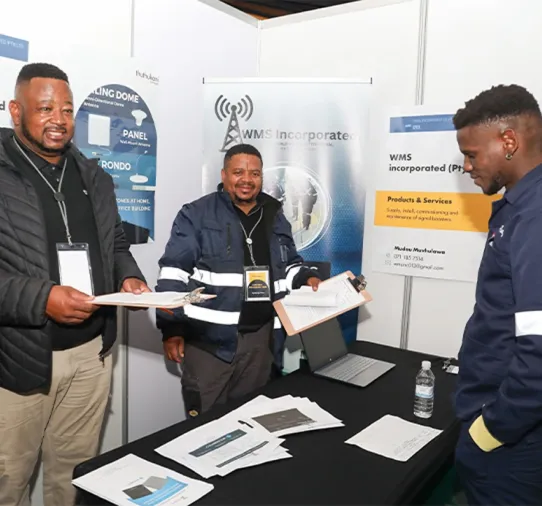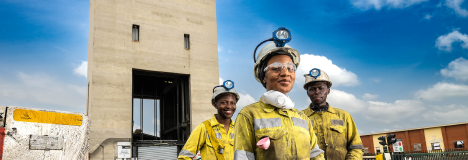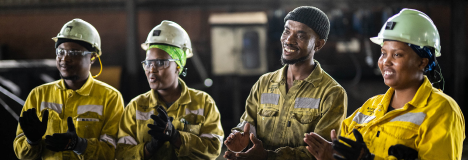Our social contributions are guided by our socio-economic development approach, which informs our SLP, strategic and CSI spend. Additionally, South African mines are required by the Mineral and Petroleum Resources Development Act to have an SLP, which outlines their commitments to employees and impacted communities, and how these will be achieved. They are legally binding once a mining right is granted. SLPs are valid for a five-year period, after which a new SLP must be submitted to the DMPR for approval.
SLPs outline targets for employment equity, the human resource development of historically disadvantaged South Africans, and the delivery of impactful LED projects in host communities. As we develop new SLPs, it is essential that our projects consider both the impacts of climate change and closure as operations approach the end of their lives.
CSI is guided by inputs and requests from a variety of local stakeholders.
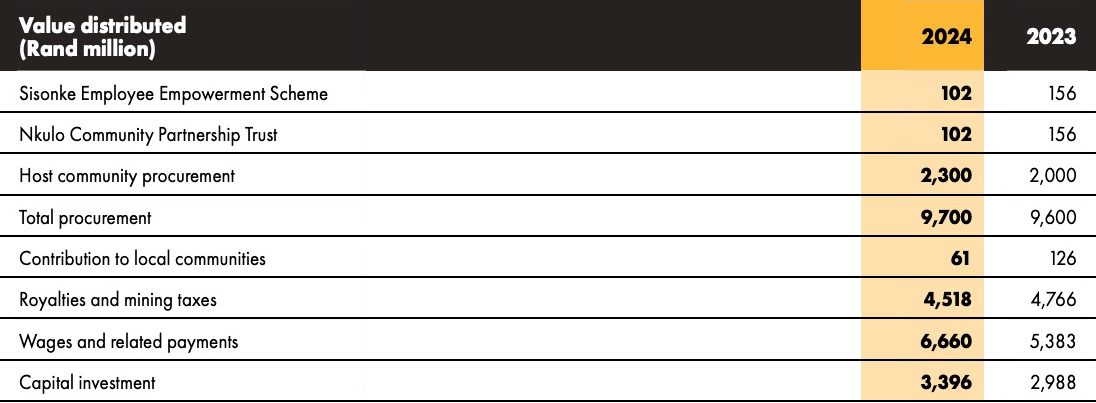
In 2024, three operations submitted updated SLPs to the DMPR for approval as part of the five-year cycle. Recognising the potential risks during the 2024 election year, a proactive decision was made to temporarily suspend the execution of some projects for the safety of our employees and contractors. Consequently, a restricted number of CSI and SLP projects were executed. These include: the renovation and expansion of the Zamelani Abadala Old Age Group Centre in the Govan Mbeki Local Municipality by Zibulo, the official opening and handover of an art studio for the world-renowned Ndebele artist, Dr Esther Mahlangu, and several infrastructure improvement projects at schools by Goedehoop and Mafube.
In January 2024, we launched a new education initiative. This initiative will see us invest a planned R160 million in 45 primary schools over five years. Expenditure in 2024 was expectedly low as preliminary work was undertaken to establish baselines against which to measure the programme’s impact and to identify priority activities. A five-year work plan was developed. More details about the programme and activities in 2024 can be found on page 138. Total social spend was also lower in 2024 because a once-off water supply arrangement of R40 million with the eMalahleni Local Municipality was made in 2023.
Expenditure on ESD through Thuthukani rose from R28.1 million to R33.2 million.
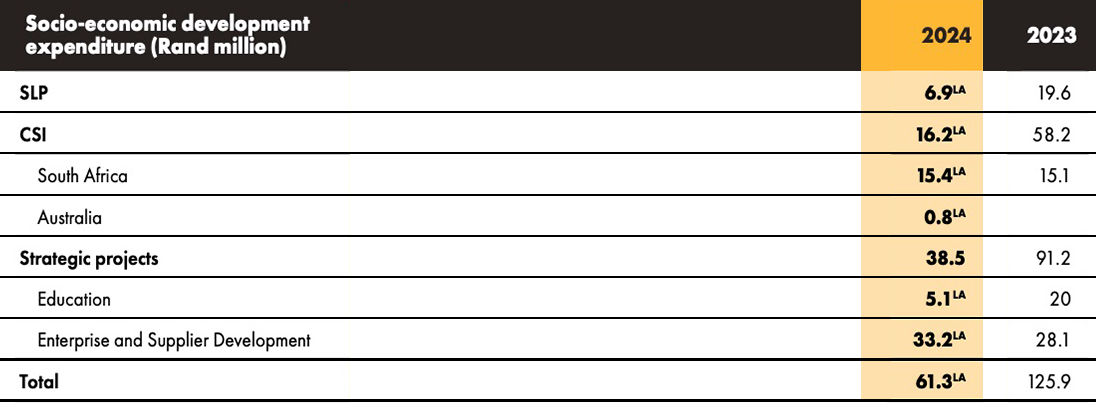
Ensham is a dedicated supporter of community groups and prioritises sourcing goods and services from businesses in the Queensland region. The mine provides sponsorships to organisations, including the Emerald Amateur Swimming Club, Comet Benefit Rodeo and the Emerald Rodeo Association to encourage the youth to participate in sporting activities. It supported the Emerald State High School with a donation of gazebos and prizes for the annual awards ceremony, and the Rotary Club of Emerald’s community carols by candlelight event. It also provides support to the Central Highlands Health Suicide Prevention Programme towards its implementation of the nine Life Span Strategies which include:
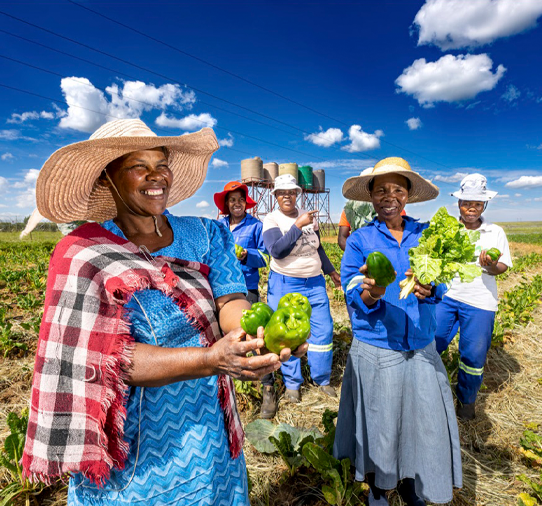
Investments, in all their forms, are closely aligned with our socio-economic development approach which identifies four key impact goals as shown below.
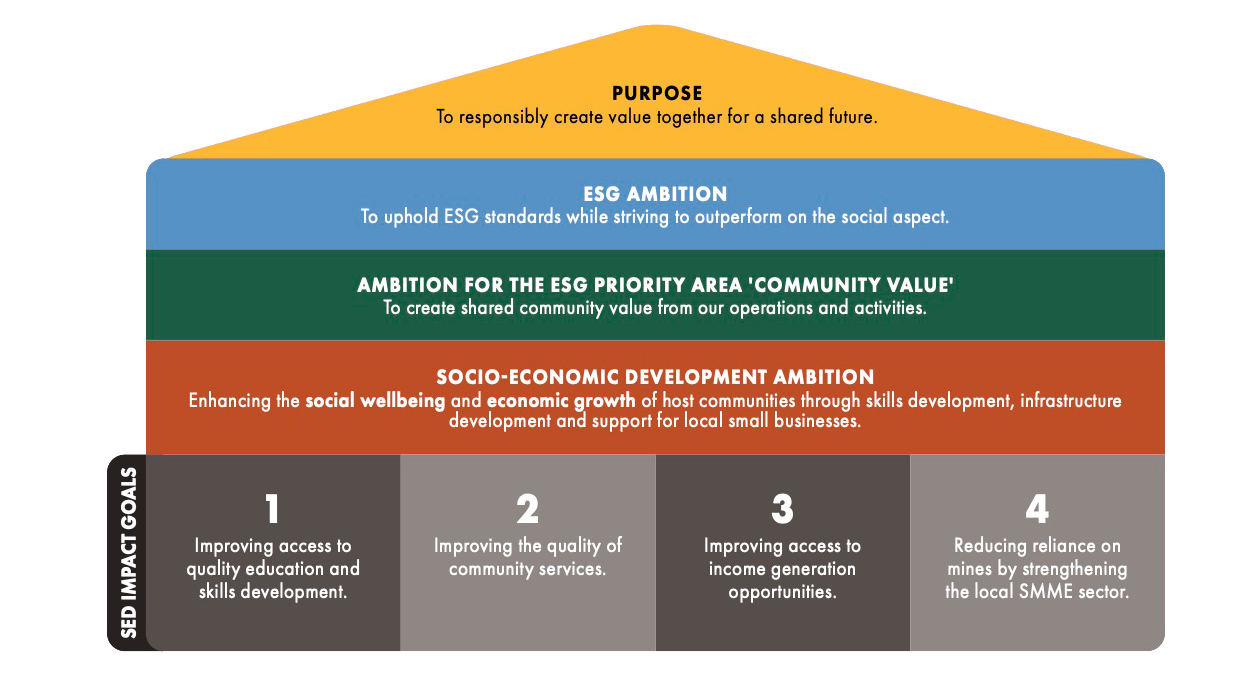
We use a theory of change-based approach in the selection, planning, implementation and measurement of major social projects. The theory of change is an outcomes-based approach to programme scoping and design that is participatory in nature. This process outlines the inputs, activities, outputs and outcomes of projects as well as indicators that allow performance tracking against an established baseline.
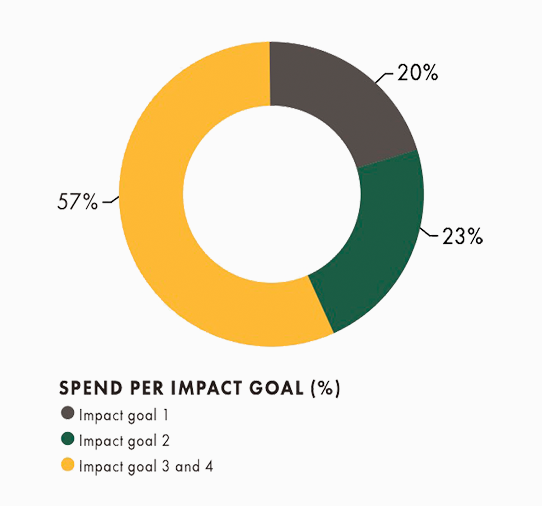
The Nkulo Community Partnership Trust handed over its first two projects in 2024. The trust is an additional vehicle through which we create value for host communities. Registered as a public benefit organisation, Nkulo was created to support welfare and humanitarian initiatives; healthcare; education and development; social mobilisation; conservation, the environment and animal welfare; and sports and culture.
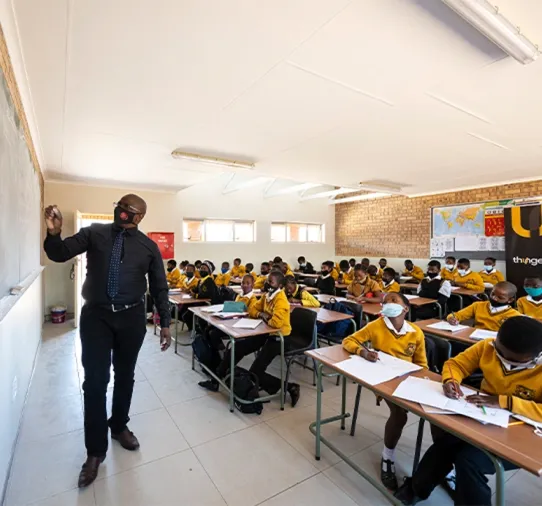
Our sites rely on large volumes of goods and services to support the efficient running of their operations. We are committed to using this as an opportunity to drive positive change through our supply chain. By focusing on responsible sourcing and local procurement, we are able to stimulate regional economies, create jobs and promote ethical labour practices and other sustainability priorities among the broad network of business partners we work with.
